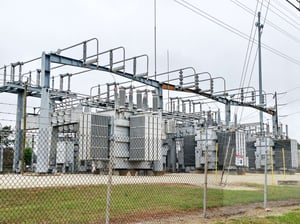Harnessing Excellence: The Significance of ISO Certifications for Insulect and its clients
Ensuring high-quality, environmentally sustainable, and safe products and services is essential in the modern business landscape. For ...
Top 15 questions on Retrofilling Transformers with Ester Fluids
We get lots of questions on Ester Fluids… Especially when it comes to retrofilling transformers. That’s why we’ve put this guide together ...
Manufacturing Capabilities
Insulect Manufacturing Insulect’s manufacturing capabilities form a key part of the trusted service we offer our customers. Our two modern, ...
Powering critical industries with ester fluids
Keeping the power on for industry As the use of MIDEL grows worldwide, there are an increasing number of industrial customers with MIDEL ...
Discover all that Insulect does for Switchboard Builders
Our new Switchboard Video We've put together a short video that captures all Insulect do for our Switchboard customers. Including our full ...
Reach compliance with AS/NZS 61439 by partnering with Insulect
Reach compliance with AS/NZS 61439 series by partnering with Insulect LV Switchboard Builders are experiencing a period of change with the ...
Healthy Transformers Live Longer and Cost Less to Manage
Due to the unchanging design fundamentals of transformers, these asset often remain viable parts of a network for many decades. When looked ...
Which transformer oils are compatible with MIDEL ester fluids for retrofilling?
ANSWER: Miscible: Mineral oil, high temperature hydrocarbon oil Not miscible: Silicone oil Miscibility is an indication of the ...
Utility reduces risk of explosions in CTs
A protection scheme to prevent explosions of current transformers (CT) has been developed by the Israel Electric Corporation (IEC). ...
Introduction to transformer oil level gauges
Oil level indicators are essential transformer equipment Transformer oil level indicators - also known as liquid level indicators or OLIs ...
